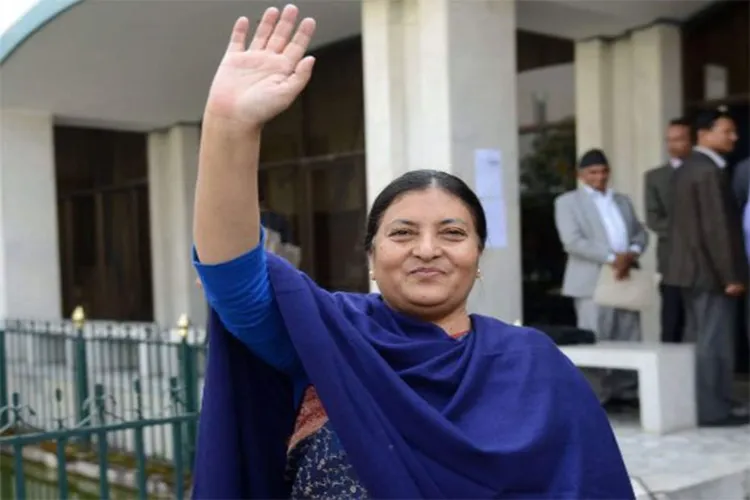Kathmandu
Nepal's politics is on a collision course after President Bidhya Devi Bhandari refused to authenticate the citizenship bill.
The bill, passed by both the House of Representatives and the National Assembly, aims to provide citizenship for hundreds of thousands of people living without citizenship in Nepal.
Bhandari, who was the senior leader of the Nepal Communist Party-UML which is now in opposition, was dead against the legislation. The UML is also against the bill forwarded by the incumbent Sher Bahadur Deuba government.
Following the President's refusal, the ruling coalition on Wednesday concluded that Bhandari's move to refuse to certify the bill was an insult and devaluation of the federal Parliament.
The Nepali Congress, CPN (Maoist Center), CPN (United Socialist), and Janata Samajwadi Party issued a joint statement on Wednesday and opposed the move which the ruling coalition called "unconstitutional"They concluded that President Bhandari's decision has violated the constitutional provision.
Four parties of the ruling coalition except the Rashtriya Janamorcha party have signed the statement. "This unconstitutional move by the President has insulted and devalued the federal Parliament elected by the people," reads the statement.
The parties concluded that the steps taken by the President deprived the children of Nepalese parents of their constitutional right to citizenship. They accused President Bhandari of attacking the basic values of the Constitution promulgated by the Constituent Assembly. The statement was issued after the ruling coalition had called a meeting to discuss the issue.
The deadline for authenticating the bill sent by Parliament to President Bhandari ended on Tuesday midnight. According to the Constitutional provision, the President had to authenticate the legislation within 15 days. Speaker Agni Prasad Sapkota sent the bill to the President's Office for the second time on September 5. Therefore, as mentioned in Article 113, sub-section 4 of the Constitution, the President had to certify it if the same bill was submitted for authentication for the second time."If the President returns a bill with a message, both Houses will reconsider such a bill and if such a bill is passed as presented or resubmitted with amendments, the President will certify it within fifteen days of its submission," says the Constitution.
On August 14, President Bhandari had returned the legislation after it passed by the House of Representatives and the National Assembly and sent for authentication.
Even though the President returned the bill to the House for reconsideration, the House of Representatives and the National Assembly made no changes.

